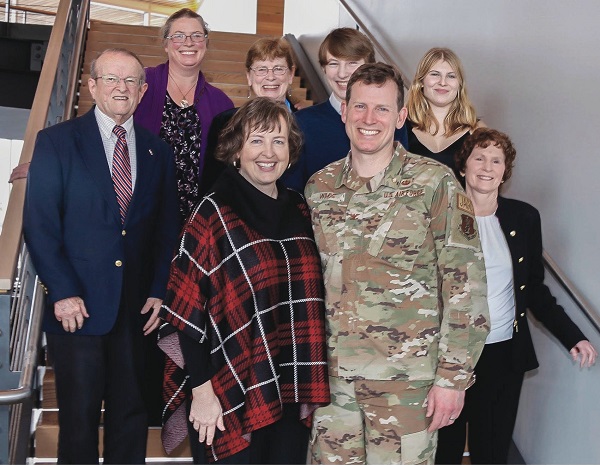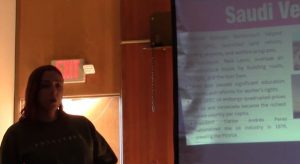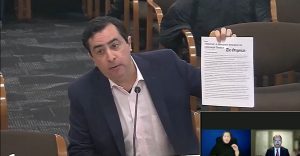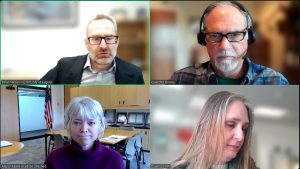A critical retrospective on 28 years of military service
4 min read
by Marty Wilde
Being in the military means learning the skills for a job you hope you never have to do. And, unlike firefighters, paramedics, or police officers, many veterans never do serve in the battlefields to which their training applies. But we do serve our country in useful ways and get experiences that provide insight about national policies.
I retired in early March after 28 years of military service, both on active duty and as a reservist, including stints in in three domestic operations and three overseas operations. Looking back, I see lessons for us as a country in each operation.
Domestic Operations in 1996, 2006, and 2021. We must train people to do the jobs we want them to do. Domestically, the National Guard is our country’s 911 force. However, unlike first responders, the Guard rarely has the training for specialized work. Instead, we work as a well-organized but temporary labor force, with broadly useful skills in problem solving and managing systems.
I fought wildfires above Oakridge and worked in hospitals during the pandemic. In each case, we backfilled critical roles, relying on our efficiency and adaptability as a team to manage general systemic tasks, and freeing the specialists to operate in the roles requiring technical and professional expertise.
In contrast, we excel at the missions we train for. I worked as the legal advisor to the commander who had to decide whether to shoot down an airliner if it was hijacked. While no one should ever have to make that kind of decision, it was clear that we gave those commanders every possible support and everyone there was well-trained for their job.
Qatar and Kuwait in 2004. Overseas missions should include the vision of a definite and realistic end state before we send people to fight and die for those missions. General David Petraeus famously posed his challenge, “Tell me how this ends,” when he was the commander in Iraq.
My job was the less glamorous cat-and-dogs legal work of supporting a large overseas base. It included everything from prosecuting criminals to figuring out how to avoid being robbed blind by contractors. For both of us, however, the challenge was seeing how we could complete the mission, not just move it forward.
Eventually, in Iraq, General Petraeus decided that we were going to leave the Iraqis with a government that they wanted and that could generally maintain order, even though it wasn’t particularly friendly to the U.S. His vision was practical and doable, if not ideal. Sadly, we still deploy an awful lot of people to the base I helped build in Qatar, a country with a human rights record that leaves a lot to be desired.
Bosnia in 2008. Peace cannot be achieved without accountability. By the time I unexpectedly deployed to Bosnia, its civil war had been over for 13 years. My job was largely to help find and prosecute war criminals and come up with plans to close Camp Butmir in Sarajevo. Of my overseas missions, this one was the only one I never doubted the need to do. Indeed, I returned twice to help continue anticorruption and human rights work, even after we shut down the base.
While I was there the first time, we captured genocidal ex-President Radovan Karadžić, who stood trial in the Hague. I often read in the stories about the war in Ukraine that the soldiers who commit crimes against humanity are unlikely ever to stand trial. I respectfully disagree. The capture of Karadžić and other major war criminals showed our willingness to prosecute and enabled major forward progress on resolution of the remaining conflicts in Bosnia.
Afghanistan in 2011. Only good governance can end an insurgency. The ultimate failure of the Afghan government comes as no surprise to anyone who worked with it. I first wrote “Karzai = Diem” about two weeks after arriving in Kabul to work on NATO’s Rule of Law team. I meant that the corrupt Afghan president did not enjoy the support of his people any more than South Vietnamese President Diem did before his assassination. Neither Karzai nor Diem took care of their people, as all people expect leaders to do.
When people wonder how Palestinians can possibly support Hamas, which most see as a terrorist organization, I remind them that Hamas is not corrupt and it delivers services to the people. Fatah/the Palestinian Authority does not engage in terrorism as a matter of policy, but it is massively corrupt and does not deliver services for its people. In retrospect, I certainly could not say that I knew we were going to “lose” in Afghanistan, but I did know the Afghan people would never “win” under the corrupt government then in power.
My activations and deployments gave me a perspective on world events that I’ll always treasure. As a country, we tend to forget the harsh lessons of history quickly. Too many of our young servicemembers die because of it. We can honor them by remembering the limits of military power and using it sparingly and thoughtfully in the future.
Marty Wilde is a retired member of the Air National Guard. The views herein are his own and not necessarily the opinions of the Departments of the Air Force or Defense. Contact Marty Wilde by email or see https://martywilde.substack.com/.







